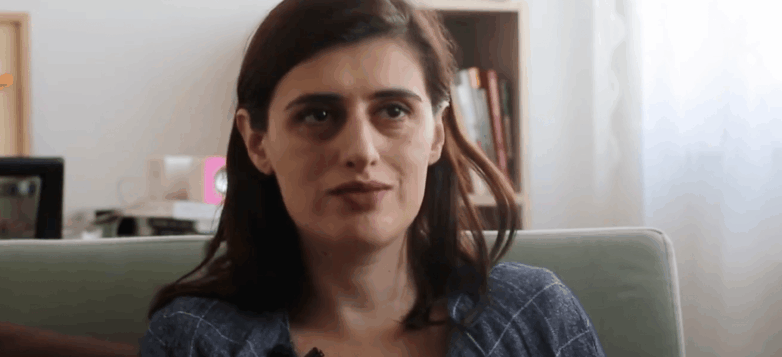Saranda Bogujevci (1986), MP, Podujevo
Aurela Kadriu: Do you remember the summer of 2007, or how do you remember the summer of 2007?
Saranda Bogujevci: The summer?
Aurela Kadriu: Of the year 2007, the summer before the declaration of independence.
Saranda Bogujevci: Yes, now (laughs) now I remember. Actually it was, 2007 was a time when a lot of things happened. We had a project with artists from Kosovo who for the first time exhibited in, in England. So during that year I came to Kosovo often. It was, I mean during my studies, for me it was a loaded year, with interesting projects, with interesting things that happened. In… the summer of 2007, I can say that I spent most of that time in, in Albania, and a part of it in Kosovo.
Aurela Kadriu: Can you tell us when you first heard or when you first realized that Kosovo will declare independence?
Saranda Bogujevci: I can’t say, it’s hard because sometimes you focus on particular memories and you don’t think of the rest.
Aurela Kadriu: What do you link it to when you think about it?
Saranda Bogujevci: To tell you the truth, I link the independence of Kosovo with, I mean the time when Kosovo’s independence was declared I was studying in Canada, I was an exchange student from the university in Manchester. And I was in Canada for six months so during that time when it, when it was talked about and when the independence was declared I was there. So everything, when we talk about the memories of the time that Kosovo declared independence I was in, I always link it to, to Canada (smiles).
Aurela Kadriu: Can you tell us what independence meant to you? What did you think the day it was declared?
Saranda Bogujevci: To tell you the truth, it was a big celebration, I mean it was immediately organized in the center of Toronto, Albanians gathered. I remember, it was an honor for me, they asked me to talk, so to address all the compatriots that were gathered in, in Toronto. I remember I had… I mean with, with the family I had, the friends I had in Toronto, I drew the eagle like the one in the pictures on the cheeks of all the kids and the younger generations. It was a huge celebration.
I remember a day before declaring independence, because the Albanian community was big, everywhere you walked, it seemed like, like you were in Kosovo. You would see them celebrating in cars, with the flag.. And then, the next day, when the independence of Kosovo was declared, there was a, a huge celebration. It was really cold (laughs) but there was, was a huge celebration.
Aurela Kadriu: Did you watch it live or… the session?
Saranda Bogujevci: Yes, yes. Of course, of course. First, I mean, first we watched the declaration of independence then all the Albanians organized… So the roads to the center of Toronto were blocked because all the Albanians who lived around Toronto gathered there. We celebrated in that part of the city, in the center of Toronto. And then later there were other events, events that gathered…
It was interesting, because during that time I met a lot… because as a community it is pretty big and, I mean, the community of Serbs, Croats, the community of the Balkan countries, where I was in Canada. And the experience with the young Serbs was interesting, and their perception on Kosovo’s declaration of independence. Most of them were very young when they went to Canada, or they were born there. Or most of their family were Serbs from Croatia or Bosnia or… You know, not, not exactly from Serbia. And it was really interesting to see the debates between young Kosovars and Serbs.
Aurela Kadriu: Can you tell us details from…
Saranda Bogujevci: Well… It was really interesting how, how determined they were that Kosovo belongs to Serbia even though they had never been to Kosovo, they didn’t know much about Kosovo. It was very noticeable that it was something passed down from their families, not that they understood it. And it was very interesting to see, for example, because they were determined and they gave themselves the right to tell you… They did not dare talk about this with, me because they knew the history of, of my family and they were very careful but, for example, the discussions they had with the others. So they had this determination that Kosovo belongs to Serbia. But you could see that actually they didn’t understand it much, it wasn’t their belief, but it was passed down from their family. Because, for example, at night when they wanted to go out because you could see them, everywhere you went, because they lived in the same place, they did not care where are you from, or they would forget where their family is from. But you could see how much, the influence directly from, from the family. Not that they cared much. So it was an interesting experience for me.
